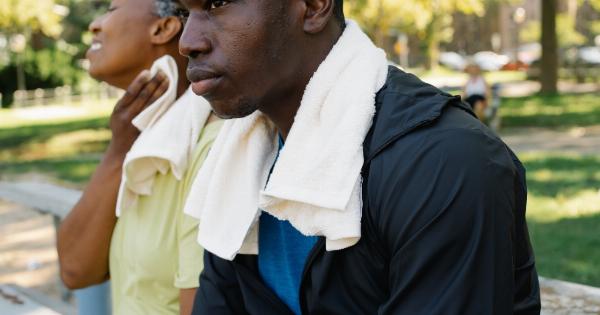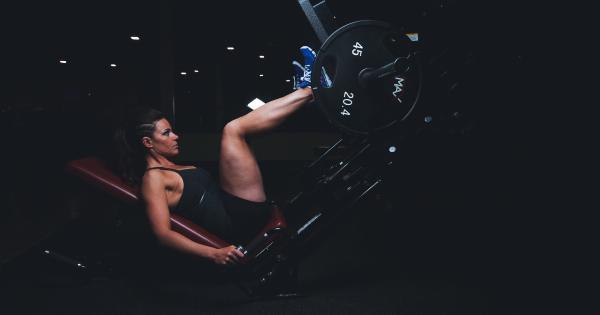Sweating is a natural and vital process that helps regulate body temperature. It is the body’s way of cooling down when it gets too hot. However, excessive sweating can be uncomfortable and embarrassing for many people.
If you are tired of dealing with sweat stains, body odor, and the discomfort that comes with excessive sweating, it may be time to embrace a sweat-free lifestyle. In this article, we will explore what you need to know to achieve a sweat-free lifestyle and enjoy a more comfortable and confident you.
The science behind sweating
To understand how to reduce sweating, it is important to first understand why we sweat. Sweating is controlled by the sympathetic nervous system, which is responsible for the body’s fight or flight response.
When the body’s temperature rises, such as during exercise or hot weather, the sweat glands are stimulated to produce sweat. Sweat is composed mostly of water and electrolytes and is excreted through the pores in the skin, allowing the body to cool down and maintain a stable temperature.
Factors that contribute to excessive sweating
While sweating is a normal bodily function, some people sweat more than others. There are several factors that can contribute to excessive sweating, including: 1. Genetics: Some individuals are simply predisposed to sweating more than others.
If your parents or close relatives have a history of excessive sweating, you may be more likely to experience it too. 2. Hormonal changes: Hormonal imbalances, such as those that occur during puberty, menopause, or pregnancy, can lead to increased sweating. 3.
Medical conditions: Certain medical conditions, such as hyperhidrosis, thyroid problems, or diabetes, can cause excessive sweating. 4. Medications: Some medications, including certain antidepressants and antipsychotics, can cause excessive sweating as a side effect. 5.
Stress and anxiety: Emotional stress and anxiety can trigger the body’s fight or flight response, leading to an increase in sweating. Identifying the underlying cause of your excessive sweating can be helpful in developing an effective strategy to manage it.
Tips to embrace a sweat-free lifestyle
While it may not be possible to completely eliminate sweating, there are several strategies that can help you embrace a sweat-free lifestyle. Here are some tips to consider: 1.
Choose breathable fabrics: Opt for natural fibers, such as cotton or linen, that allow your skin to breathe and help wick away moisture. 2. Wear loose-fitting clothes: Tight or restrictive clothing can trap heat and moisture, leading to more sweating. Opt for loose-fitting, lightweight clothing that allows air to circulate. 3.
Use antiperspirants or deodorants: Antiperspirants work by temporarily blocking the sweat glands, reducing the amount of sweat that is produced. Deodorants help mask the odor associated with sweating. Look for products that are specifically designed to control excessive sweating. 4.
Keep cool: Take steps to keep your body temperature down, such as using fans or air conditioning, taking cool showers, or using cooling towels or sprays. 5. Stay hydrated: Drinking plenty of water can help regulate your body temperature and prevent excessive sweating. 6. Manage stress: Find healthy ways to manage stress and anxiety, as they can trigger sweating.
Consider relaxation techniques, such as deep breathing exercises or meditation. 7. Choose the right footwear: Opt for shoes made from breathable materials that allow air circulation, such as leather or canvas. Avoid wearing shoes that are too tight or made from synthetic materials that can trap heat and moisture. 8.
Avoid spicy foods and caffeine: Spicy foods and caffeine can stimulate the sweat glands, leading to increased sweating. Limit your consumption of these substances if you are prone to excessive sweating. 9. Experiment with natural remedies: Some people find relief from excessive sweating by using natural remedies, such as sage tea, apple cider vinegar, or witch hazel.
Consult with a healthcare professional before trying any natural remedies to ensure they are safe for you. 10. Consider medical treatments: If excessive sweating is significantly impacting your quality of life, talk to a healthcare professional about medical treatments.
These may include prescription antiperspirants, oral medications, Botox injections, or even surgery in severe cases. By incorporating these tips into your daily routine, you can take steps towards living a more sweat-free lifestyle and enjoying the benefits of increased comfort and confidence.






























